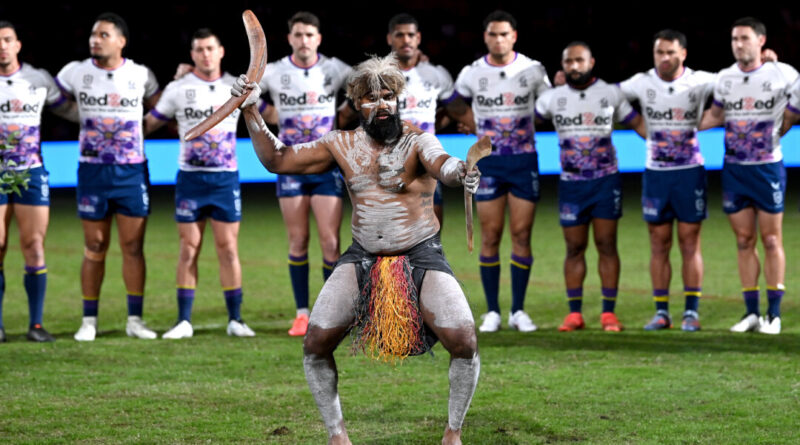Clarification from Melbourne Storm on Limiting Indigenous ‘Welcome to Country’ Performances
The decision to scale back Indigenous ‘virtue signalling’ in Australian institutions is gaining momentum. The Melbourne Storm recently tested the waters by removing certain ceremonies from games during the season. Given the lack of public concern about the removal, the club has decided to limit ceremonies to Indigenous-themed games only.
The Welcome to Country ceremony, popularized in the 1970s, involves a short ceremony and dance by an Aboriginal group before official events. In recent years, this performance, along with the “Acknowledgement to Country,” has become a common feature before major Australian sporting, business, and political events.
Statement from Melbourne Storm
The Melbourne Storm clarified that they are not abandoning the Welcome to Country despite recent media reports suggesting otherwise. They mentioned that they will continue these acknowledgments at culturally significant celebrations. The club believes that engaging with various cultures and communities has contributed to their success and helped in reflecting different views.
They also mentioned that they will continue to work with these communities to find the most appropriate and respectful way to acknowledge and celebrate culture, including how they can best acknowledge First Nations people. The club is committed to supporting First Nations community groups and organizations to promote positive health, welfare, and education outcomes.
Insights from Researcher
A researcher from Close the Gap Research expressed that football fans do not want their games to be politicized. He noted that there is a growing sentiment among supporters against the ‘Aboriginalization’ of Australia through ceremonies like Welcomes. Fans simply want to enjoy football peacefully with fellow fans, regardless of their backgrounds.
Recent moves by the Melbourne Storm coincide with a broader shift in governments and organizations towards more practical strategies and reconciliation efforts instead of ‘virtue signalling.’ This shift is evident in decisions like Minister Dutton’s stance on flag representation and the redirection of funding towards Indigenous health, housing, employment, and education initiatives.



